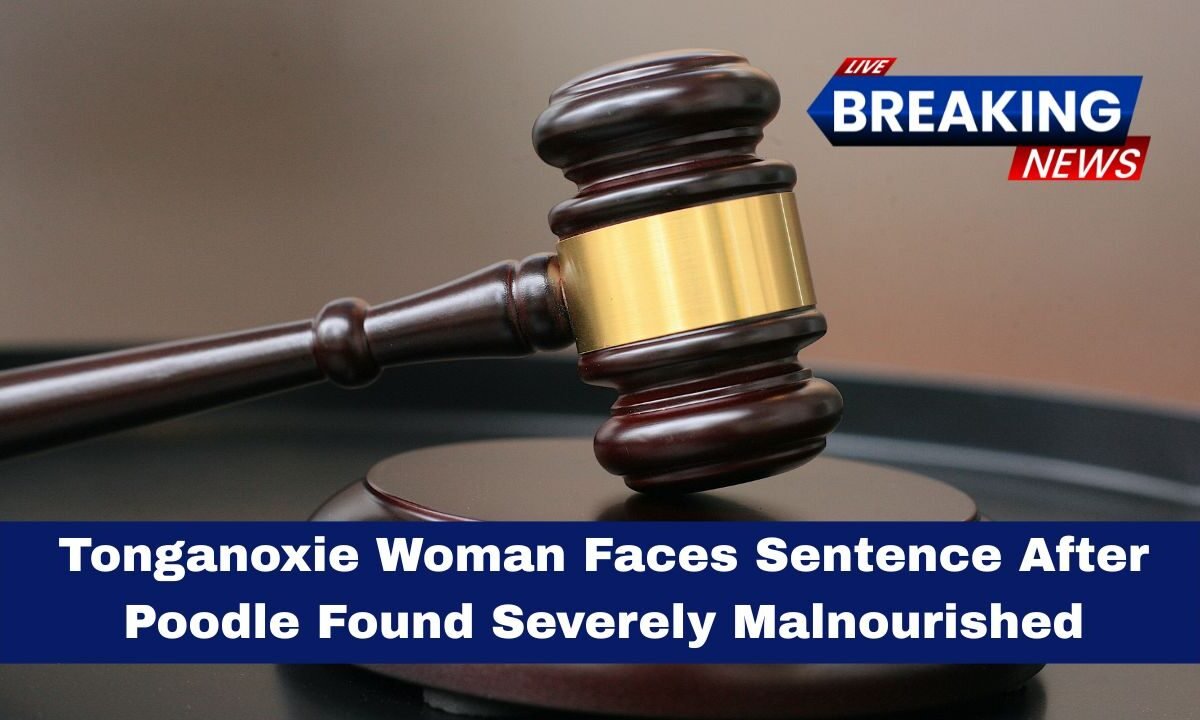A shocking case of animal cruelty in Tonganoxie, Kansas has come to a close, with two women sentenced after a black poodle was found severely malnourished and abandoned in 2024.
The disturbing discovery has sparked outrage in the community and drawn attention to the importance of stricter animal welfare enforcement.
What Happened on October 17, 2024?
On October 17, 2024, two passersby made a heartbreaking discovery on Tonganoxie Drive near 199th Street. A black poodle was found wandering in poor condition:
- Severely malnourished, with visible ribs.
- Flea-infested, indicating long-term neglect.
- Matted fur, showing signs of poor grooming and abandonment.
The rescuers contacted animal control immediately. The dog was taken in for veterinary care and scanned for a microchip, which revealed the registered owners.
The Owners Identified
The poodle’s microchip identified 35-year-old Jessica L. Fleer and 42-year-old Amanda E. Fleer as the owners. Investigators quickly linked the women to the dog’s condition, leading to charges of animal cruelty and neglect.
Sentencing in September 2025
On Friday, September 19, 2025, both Jessica and Amanda Fleer were sentenced in Leavenworth County Court. While each faced potential jail time, the judge chose a mixed approach of punishment and rehabilitation.
1. Key Sentencing Details
| Defendant | Sentence | Additional Orders |
|---|---|---|
| Jessica L. Fleer, 35 | 6 months jail (suspended) | 1 year supervised probation |
| Amanda E. Fleer, 42 | 6 months jail (suspended) | 1 year supervised probation |
| Both | $1,542.28 restitution | 50 hours community service, no animal ownership during probation |
The women were ordered to pay $1,542.28 in restitution to the Leavenworth County Humane Society, covering the poodle’s medical care and recovery expenses.
Why the Sentence Was Suspended
Instead of immediate jail time, the judge opted for supervised probation, giving the defendants a chance to rehabilitate while ensuring community service and restitution.
- Both women must complete 50 hours of community service.
- They are prohibited from owning or caring for animals during their probation.
- If they violate probation terms, the suspended six-month jail sentence could be enforced.
Community Reaction
The case has outraged many in the Tonganoxie and wider Leavenworth County community. Animal advocates argue that animal cruelty cases often deserve tougher penalties to deter future neglect.
Local residents expressed frustration that the women avoided jail time, but many welcomed the restrictions on animal ownership and the restitution order to support the Humane Society’s efforts.
Importance of Microchipping and Reporting
This case underscores the importance of microchipping pets. Without the microchip, the owners may never have been identified. It also highlights the role of community members who reported the suffering animal.
Animal welfare experts stress that anyone who suspects neglect or abuse should contact local authorities immediately.
Broader Context- Animal Cruelty Penalties in Kansas
In Kansas, animal cruelty is classified as a misdemeanor for first-time offenders, but penalties can increase with repeat offenses. Typical punishments include:
- Jail time (up to one year).
- Fines and restitution for veterinary costs.
- Community service.
- Restrictions on animal ownership.
Advocates continue to push for stronger laws to address severe cases like this one.
The sentencing of Jessica and Amanda Fleer in Leavenworth County highlights the community’s struggle with animal cruelty enforcement.
While the women avoided jail time, their probation, community service, and restitution reflect accountability.
The case serves as a reminder of the importance of responsible pet ownership, vigilant neighbors, and the critical role of animal welfare organizations.
For the rescued poodle, recovery was possible thanks to quick action from Good Samaritans — but the story stands as a warning of the consequences of neglect.




